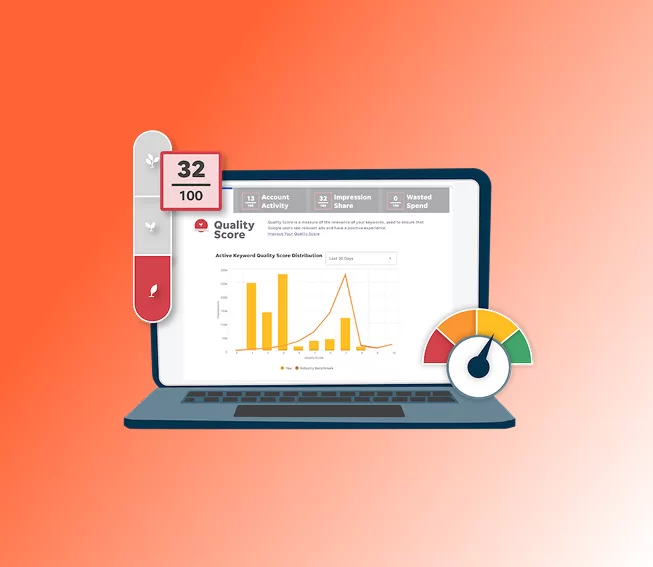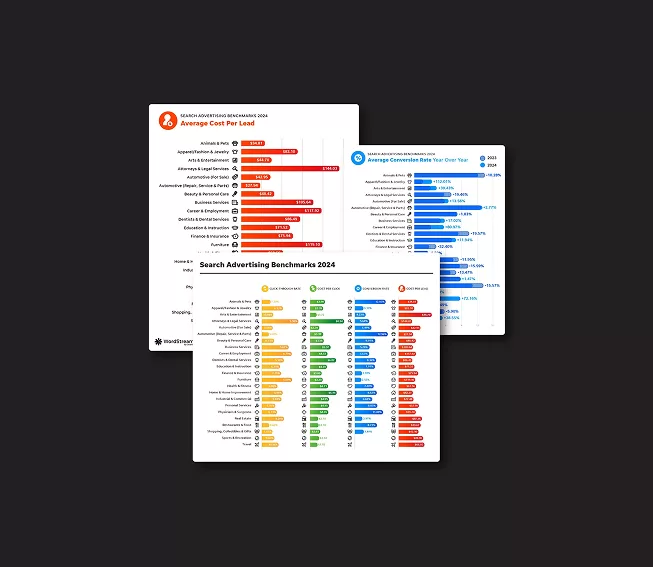If you follow the SEO space at all, you’ve likely noticed that there is a ton of change going on:
- AI Overviews are showing up with varying frequency in different Google search results
- More and more people are looking for more information and “searching” for things in ChatGPT and other AI tools
- Algorithm updates have destroyed entire sites and changed the nature of what works (and doesn’t) for various sites
Among others.
But general SEO trends–and even some of the trends specific to local SEO–may not make sense for your business. I even argued in the past that local SEO has been less impacted by many SEO trends than other verticals.
So how should small businesses think about the top local SEO trends in 2025?
In this article, I’ll walk through five trending local SEO topics and how you can think about them as a small business.
Contents
5 trending local SEO questions for 2025 (with answers!)
Here, I’ll break down five big questions on everyone’s mind when it comes to local SEO in 2025 and share my takes plus tips.
1. Should you be optimizing for ChatGPT and other AI tools?
In recent years most of the focus of “SEO” efforts has been focused on Google. Some reports and conjecture now have Google search share dropping and SearchGPT search share surging.
But Google’s “drop” could be to 80-90% of search traffic while SearchGPT’s “surge” could reach 1%.
So how much should your small business care about AI tools or large language models (LLMs) like ChatGPT, Claude, Grok, and others?
What’s the same?
Off the bat there’s good news for small businesses when it comes to ranking in ChatGPT and other tools: A lot of the work you’re already doing for SEO will help you rank well in ChatGPT and other AI tools.
This includes:
- Having a lot of reviews
- Building local citations
- Getting external links
- Making sure your website and company profiles are optimized for key services and your area
What’s different?
For some searches and questions, ChatGPT will come up with the same answer as Google (even though ChatGPT’s search product, SearchGPT, uses Bing’s index):

And Google’s results:

ChatGPT claims its source here is Google, among others:

They’re even including links to Google Maps:

But not every LLM generates the same results in the same way. Here is Perplexity’s answer to the same question:

Grok agrees with the first two answers:

And Claude won’t even answer the question:

When you drill into the sources used by ChatGPT, Grok, and Perplexity some are referenced multiple times:
- Angi
- Yelp
- Thumbtack
- Mr. Handyman
- Yellow Pages
- Home Advisor
- Task Rabbit
Again here: If you are a local home services business these sites were likely already on your radar as places you want to get listings and reviews.
So for the moment to answer the question “should you be optimizing for ranking in ChatGPT and other AI tools” is “you already are.”
Some slight tweaks to your process you can consider:
- Look in ChatGPT, particularly for your core services and areas.
- See what sources are listed, make sure you have a presence there, and drive more reviews in those places if you can.
- Pay a bit more attention to your Bing listing and Bing reviews. Even though the example above is powered by Google Maps, Bing is closely partnered with ChatGPT, and they may power more answers there in the future.
Other than that, optimizing for Google reviews, external links and mentions, and citations across authoritative sites on the web (activity you’re likely doing as part of your SEO efforts) is the best path to ranking in LLMs, so you don’t have to adjust your existing SEO efforts significantly.
👀 Free guide >> 20 Ways to Make Your Website More Visible on Google
2. Do local businesses still need a blog in 2025?
There’s a lot of talk about whether small businesses “still” need blogs in 2025.
My agency creates a lot of SEO-focused blog content for clients generally, and even for local SEO, so my answer here may seem counterintuitive.
If you’re a small business, you don’t need a blog.
Most small businesses are best suited to focusing first on core SEO areas:
- Optimize your GBP (Google Business Profile)
- Optimize your site’s home page for your core city and service
- Build out local service pages
- Get citations and make sure your information is consistent
- Get external links to your site
This is a lot of work! If you have an initial “SEO sprint” or limited resources, this is where to start.
If you’re in a more competitive market and have more resources, then having a blog and building out content can help give you a competitive advantage. You can accomplish a few things with locally focused blog content:
- Build topical authority around your core terms with supporting content clusters (rather than just targeting “power washing Boise” you can target terms around costs, risks, value, etc.).

- Get informational links to content like simple tools or in-depth guides (these are links that will be difficulty for competitors not investing in this kind of content to copy).
- Create content that bolsters partnerships with local businesses (blog content can be a great quick, simple way to cross-promote with other local businesses).
💡 Get marketing, content, and social post ideas for every month of the year >> The Mega Must-Have Marketing Calendar
3. Is it worth targeting ‘near me’ searches?
Near me searches are valuable, but not unlike ranking in LLMs, much of the work you can do to rank in these searches overlaps with what you’d do to rank for {town name} + {service}.
Here is a result when I searched for power washing in Wilmington, MA, from Wilmington, MA:

Here is power washing near me:

Your ability to rank in “near me” searches is largely determined by the same best practices driving rankings for your service and town (reviews, links, citations, etc.).
Beyond that there are a couple of specific things you can do to help impact rankings in near-me searches:
- Use terms like near X (e.g., power washing company near Wilmington MA), near me, or near you (e.g., Wilmington, MA power washing company near you).
- Use local landmarks, neighborhoods, and location indicators that the page is genuinely about the area in question.
Generally, these adjustments will be more likely to impact traditional organic listings than map and GBP rankings.
Since these are fairly low-effort adjustments to your site’s existing title tags and service area pages, it is worth targeting these terms. Again though: without the basic SEO best practices just adding these terms will have no actual impact.
4. Should you be trying to drive referral traffic from forums?
Forums have become a huge part of the search results page, with sites like Reddit and Quora ranking for many local searches–especially those with an intent around gathering information. Many businesses have wondered if this is something they should include as part of their local SEO strategy. Commonly called parasite SEO, there’s a practice of hosting content on a third-party website to try to get that page to rank in search results, and including a link from that site back to your own site.
For example, if I had a pressure washing company in Boca Raton, I might want to create a thread on Reddit or Quora for a topic like this (and/or I might want to answer a question like this one):

Parasite SEO can be a “gray hat” SEO tactic, with some companies creating fake profiles on authoritative sites like Reddit or Quora, creating these kinds of threads on those sites, and getting low-quality links built to those pages.
It can also be more “white hat,” with companies genuinely answering these kinds of questions in a way that’s helpful to the poster and viewers of the thread.
As with each of the other topics, the core thing to keep in mind with parasite SEO for small businesses is:
- Your primary focus should be driving traffic and leads to your own website.
- You don’t “own” a Reddit profile or post in the way that you own your site and your GBP (though you have risk associated with those assets as well!). You also can’t accomplish the same in terms of branding or conversion on a third-party site that you can on your own.
That said, once you’ve executed on local SEO basics and if you have additional resources to invest, working on a “white hat” version of parasite SEO can help generate supplementary traffic and leads.
If executed poorly, though, this strategy can negatively impact your brand and your website, so a couple of things to keep in mind:
- Be authentic, use real profiles, and be transparent about your relationship with the company.
- Select platforms where your users will be, and which are likely to rank well in relevant search results.
5. Is click-through rate manipulation worth the risk?
Click-through rate (CTR) manipulation is another “gray hat” tactic that violates Google’s guidelines.
One of the factors Google looks at for ranking is engagement metrics like the volume of clicks your listing gets when shown in search results.
Like many such tactics, if implemented correctly it actually can work, particularly in the short term.
Or even in the long term—a few risks are present here:
- If done too aggressively and implemented improperly (e.g., if the clicks come noticeably from the same IP) your site can actually get penalized by Google and lose rankings.
- If you “turn off” the optimization you’ll often see rankings drop back.
Given the degree of risk here, this isn’t a tactic that’s worth it for small businesses, even those with more resources to invest.
⭐️ Want ideas, tips, and insights delivered straight to your inbox? Sign up for our newsletter!
How to think about local SEO trends
Specific tactics are useful in local SEO, and it’s helpful to pay attention to what works, what doesn’t, and where you can find an edge with SEO (and marketing in general) changing at the rate it does.
But there’s a lot of opportunity for small businesses in local SEO, and there are still straightforward, low-risk best practices that will drive traffic and leads when done right consistently. Small businesses should start there.
When thinking about a new trend in local SEO, a good framework to use is to consider:
- Focus: Am I maxing out the tactics I know work? Does this distract or detract from those tactics?
- Resources: What does it cost you to execute this new trend/strategy? Who can “own” the tactic? If it’s a riskier tactic that you’re outsourcing, are you comfortable with the potential downside?
- ROI: What’s the potential upside? Can you quantify it, or can you create a test where you’ll at least be able to measure it?
- Risks: What are the worst-case scenarios for this tactic? How likely are they?
If you use this framework and find trustworthy experts and sources to help you vet new tactics, you can make sure you’re in control of your local SEO and marketing strategy.






